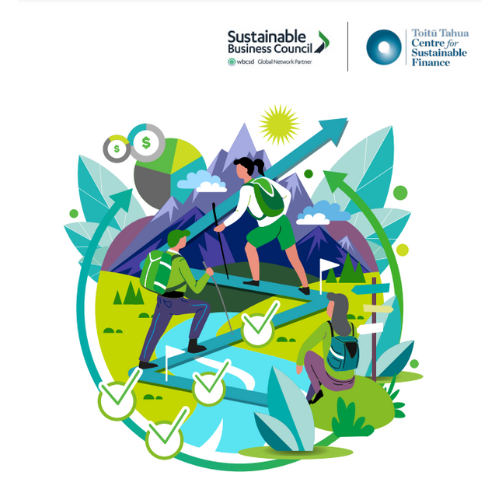Deloitte, the Sustainable Business Council and Toitū Tahua: Centre for Sustainable Finance have today released the findings of the 2022 CFO Sustainability Snapshot Survey. Now in its second year, the survey found progress towards sustainable actions remains stagnant. Respondents noted that the wide scope of sustainability issues can be complex to navigate, with organisations wondering how they are supposed to solve every sustainability issue they’re faced with.
“Driving sustainability action is no longer a secondary or ‘nice to have’ part of the CFO role. It is essential, and expected, given the role of a CFO in value protection, risk management and value creation,” said Andrew Boivin, Deloitte New Zealand Climate Leader.
“Therefore, it was interesting given the increased emphasis on sustainability and climate, that we saw little change in our year-on-year survey results, with CFOs reporting progression of sustainability activities mostly unchanged.”
However, whilst most responses remained steady, the survey did reveal that CFOs have found it increasingly difficult to measure the return on investment of driving the sustainability transition, with 57% of 2022 respondents indicating this compared to 33% in 2021.
Jo Kelly, CEO Toitū Tahua: Centre for Sustainable Finance emphasised, “Companies are having to measure the return on investment against the cost of doing nothing. As with other fundamental societal and economic shifts, it’s not surprising that there are costs associated with developing business resilience in a world that’s heading toward Net Zero.”
“CFOs also need to weigh the cost of capital as investors increasingly demand evidence of costed, science-based plans for transitioning to low-carbon, as well as other sustainability actions. CFOs will also have an eye to discounted ‘green’ or ‘sustainable’ finance options already available.”
When it came to key factors driving sustainability action across an organisation, values-based factors were once again the top considerations rather than those with a compliance focus. CFOs identified ‘it’s the right thing to do’ (66%), competitive and reputational advantage (62%), and investor or shareholder demands (37%) as the top three factors driving change.
“It’s encouraging to see organisations aren’t necessarily motivated to implement and encourage sustainability action solely as a costs and profit exercise, but rather are driven by what they as a business stand for in the community,” said Mike Burrell, Executive Director of the Sustainable Business Council.
“There is no question that people are unsure about how and what organisations need to do to progress their low carbon transition,” said Ms Kelly.
“As well as difficulty calculating the return on investment, respondents also indicated that barriers to action included a lack of resources or capability, and a lack of examples as to what is good practice and limited legislative requirements to guide them around areas to prioritise. This underlines the need for building capability, especially by engaging with your peers and learning from those further down the path.
“Meanwhile, there’s work underway to give greater clarity and agreement around best practice, for example the climate-related risk reporting standards being developed by External Reporting Board, and a government commitment to support developing sector level definitions of ‘green’ economic activity,” said Ms Kelly.
Mr Burrell said, “These latest insights are not surprising when you consider the challenging backdrop CFOs are currently facing, including the ongoing COVID pandemic, rising inflation, labour market constraints and challenging supply chains. It is important we now continue to work closely with CFOs to ensure sustainability and climate actions remains a key focus.
“Sustainability must continue to move to being at the core of business strategy, and the role and skills of CFOs in driving that shift is only going to become more critical. This can seem like a daunting task, but partnering, or reaching out to peers or other experts who may be further along in their journey is an excellent way to learn, build capability and ultimately have a meaningful impact.”
“It is clear that now is the time for CFOs to focus on material sustainability issues and collaborate to drive greater action,” concluded Mr Boivin.
The full report is available here.

